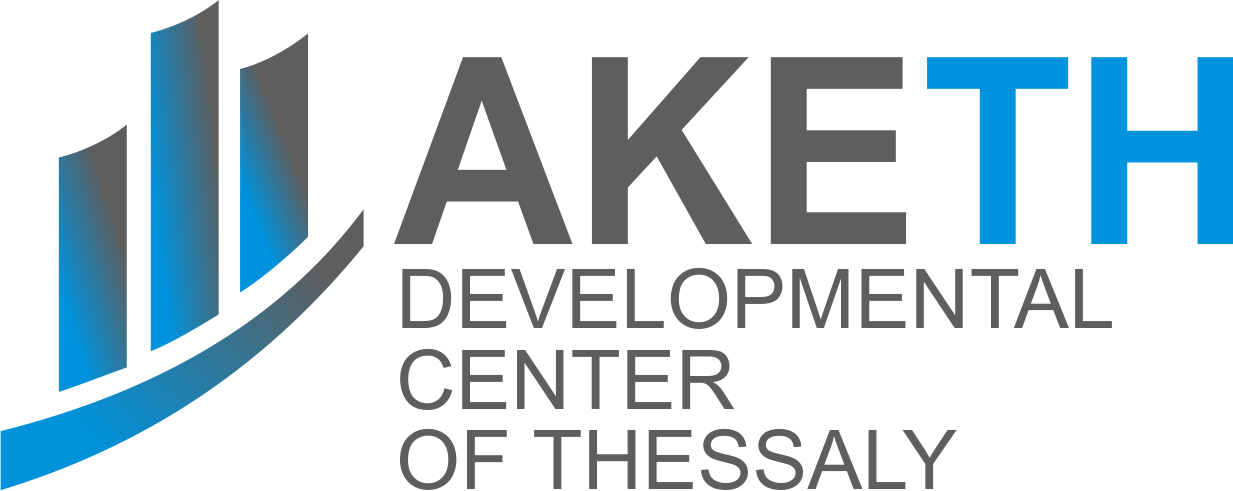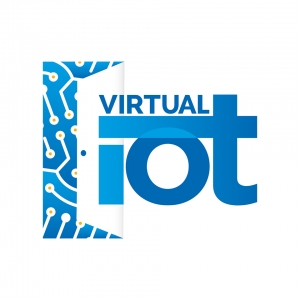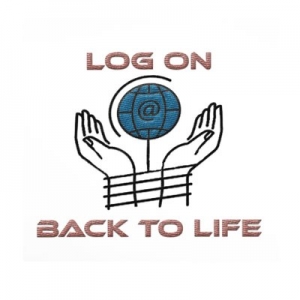Super User
LIFELONG SPECIAL EDUCATION
LIFELONG SPECIAL EDUCATION
Start: 01-10-2018 - End: 30-09-2019 Project Reference: 2018-1-TR01-KA104-055976 EU Grant: 27360 EUR Programme: Erasmus+ Key Action: Learning Mobility of Individuals Action Type: Adult education staff mobility
Project Summary
It is aimed to increase the education quality as the teachers of the Public Education Center can have the opportunity to learn the applied special education and training methods and techniques in Europe and to apply these methods and techniques in their courses. Within the scope of the project 12 teachers were attended the course which was held between 11/3/2019 till 17/3/2019 in the premises of Anaptixiako Kentro Thessalias.
Coordinator:
- AVCILAR HALK EGITIM MERKEZI - TURKEY
Partners:
- ANAPTIXIAKO KENTRO THESSALIAS - GREECE
A warm Touch to The Cold Heart

A warm Touch to The Cold Heart
Start: 03-09-2018 - End: 02-09-2019 Project Reference: 2018-1-TR01-KA101-052532 EU Grant: 43266 EUR Programme: Erasmus+ Key Action: Learning Mobility of Individuals Action Type: School education staff mobility
Project Summary
Our project was prepared under Erasmus+ KA1 School Education. Consortium members are Atatürk Anatolian High School, Amasya Anatolian High School and 12 June Anatolian High School.
In our country refugee/immigrant number is explained as 3 million 551vthousand 78 people on 15 February 2017. Only about 800 thousand refugees from Syria are at school age and about %45 of them can go to school.
According to province migration authority data there are 2 thousand 987 registered foreign guests in Amasya and 2 thousand 264 of them are covered by international protection.
The total number of refugee/immigrant students studying in our schools is 623 according to Provincial Education of Ministry. There are 55 students at Kindergarten, 275 at Primary School, 172 at Secondary School and 121 at High School.
Except for Temporary Training Centres, public schools’ not having an appropriate separate training program, registration and equivalence problems, other students’ and especially parents’ reluctance about refugee/immigrant students’ school registration and teachers’ not having enough skill to deal with troubles are basic problems.
With this project, we aim to help refugee/immigrant students (in our schools) integration into both education environment and social life to help teachers and managers have more emphatic view to refugee/immigrant students’ lives. So we aim to communicate with students properly and find solutions about their social and psychological problems. Also providing high academic success, regular school attendance, a wish for staying happy place, increase in their success and social capacity and more healthy plans for future are our aims.
While determining staff from schools, firstly guide teachers then teachers and managers teaching refugee/immigrant students were selected. It was paid special attention to select teachers having most communication with refugee/immigrant students.
A responsible teacher tries to support his/her students by having more information about students’ lives, feeling and ideas. By means of this project, our teachers will have a chance to win a more emphatic view towards refugee/immigrant students’ lives. So they will be able to help them and make them participate in education life with full capacity.
With these trainings refugee/immigrant students’ school absences will decrease, academic success will increase, they will increase their knowledge and skills required in the future by having a better education today and consequently their and their families’ life quality will increase. Staff involved in the project will see different cultures and with cultural interactions, interaction between communities will increase.
Thanks to language training in this project, refugee/immigrant students’ education and social life integration courses and seminars; our teachers will be more cultured and chief architects for building a peaceful society.
All preparations necessary for European Mobility Activities (before and after), airfares, insurance, airport transfers, other transportation and passports will be organized by travel coordinator.
With completion of our project, refugee/immigrant students’ academic performance will increase by connecting proper communication, their school absenteeism will decrease, more realistic solutions will be found to their social and psychological problems, education and social life integration will take place faster, both they and their families will be happier and more successful.
Teachers involved in the project will make cooperation with teachers from other schools. Also with seminars after mobility activities, 150 teachers from all schools in the province will benefit from information, skill and experience. After mobility activities, effective communication seminar will be given to 200 teachers from all schools in the province and participation in this seminar will be provided. Thanks to this seminar, these teachers’ communication with refugee/immigrant students and other students will increase.
The total number of participants in our project is 18. They will have course and examinations about refugee/immigrant students’ integration into education system and social life as groups up 6 in Greece, Italy and Netherlands for 7 days in each country as part of mobility activities.
Coordinator:
- Amasya Il Milli Egitim Mudurlugu - TURKEY
Partners:
- ANAPTIXIAKO KENTRO THESSALIAS - GREECE
- Compass Education - NETHERLANDS
- EUROPE FOR ALL - ITALY
Designing a 3D Virtual Environment For Teaching IoT
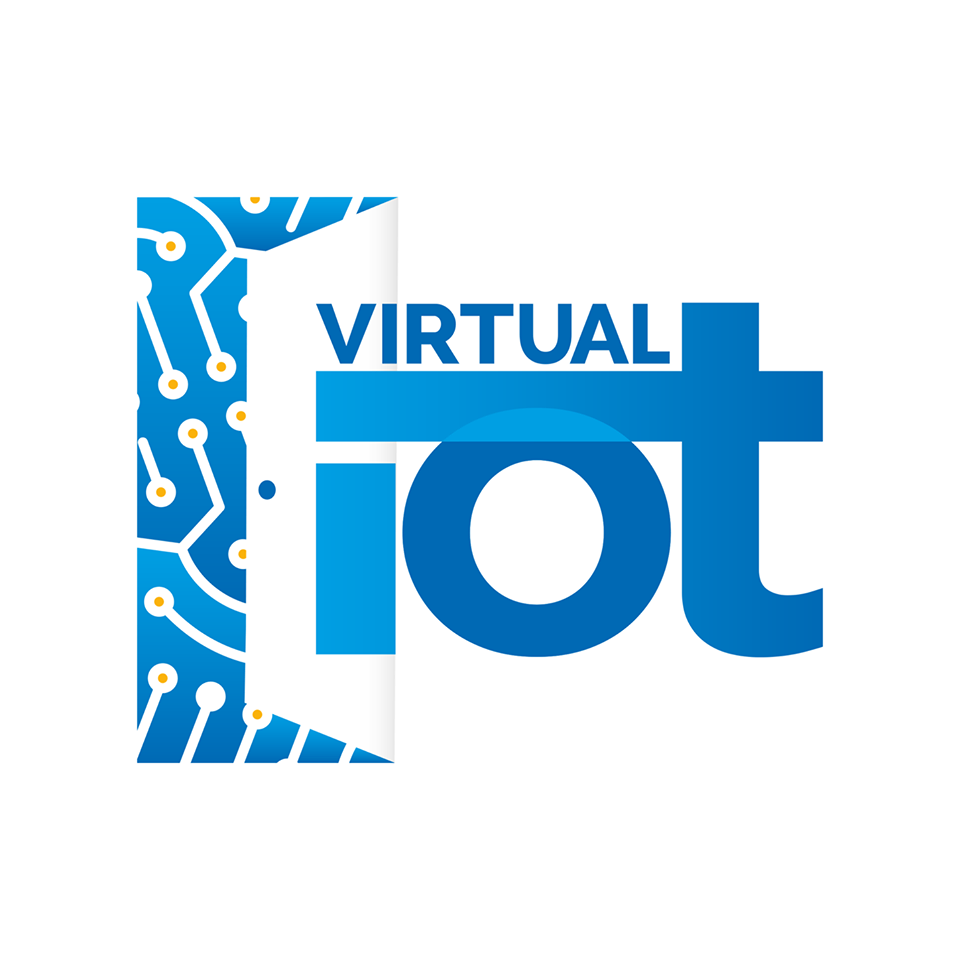
Designing a 3D Virtual Environment For Teaching IoT
Start: 01-12-2017 - End: 30-11-2019 Project Reference: 2017-1-TR01-KA203-046672 EU Grant: 120910 EUR Programme: Erasmus+ Key Action: Cooperation for innovation and the exchange of good practices Action Type: Strategic Partnerships for higher education
Project Summary
Our project depends on a detailed background from the literature and a clear needs analysis. It also contains the requirements of the latest technology and the needs of modern education systems. The project offers important outcomes for both pre-service teachers and our educators at the partner institutions.
The partnership includes three foreign partners from Poland, Spain and Greece. Moreover, a local partner is also included in the project as this partner has a key role in implementation and production of the intellectual output. The roles of each partner are defined in detail and a clear task sharing has been accomplished among the partners. In order to reach the stated aims, a project management and implementation team is established at every partner institution. These teams have important responsibilities such as conducting preparation duties, evaluating the quality of activities during the visits and so on. For the intellectual output, multiplier event is also planned.
To manage the implementation of the project flawlessly, a contract among partners is planned to be signed before starting the project activities. Three project management and implementation meetings are planned. One of them is at the very beginning of the project and this meeting is important for reviewing the form, signing the contract and making all responsibilities clear. The second meeting is planned to discuss the process of the output and to evaluate the general progress of the project. Apart from these, another management meeting is planned at the end of the project with the aim of analysing and reporting the project results and outcomes, and more importantly, working on the final documentation.
This project has local, national and international impacts and a dissemination plan is presented for dissemination of the impacts. There are also potential longer benefits thanks to the intellectual output. After the project, its impacts do not end as the virtual classroom, the R&D (Research and Development) Centre will be available for pre-service students at IT department and educators at the institutions, and they will be suggested to the other universities and the other relevant institutions to use for their programming classes and programming courses.
Development of these virtual environments will create important added value not only to the partners in this project but also to other institutions which give education on programming, as currently there is not such a virtual platform to be used in classes and courses like the one we want to create. Development of these virtual environments will have enormous impact on the quality of education in our respective partners. The target groups will benefit in terms of improving the level of learning / teaching, linguistic skills and entrepreneurial approach. In addition, the deeper cross – cultural understanding and transnational cooperation will be brought about. It will trigger modernization of our teaching techniques and will be successfully used after the project conclusion. We anticipate that by means of this project will establish very good working relationships between the institutions engaged in the learning activity, as key-decision factors, and that this partnership will continue beyond the period of the project implementation as well as all the invented educational tools.
Coordinator:
- MARMARA UNIVERSITY - TURKEY
Partners:
- ANAPTIXIAKO KENTRO THESSALIAS - GREECE
- SPOLECZNA AKADEMIA NAUK - POLAND
- Gebze Halk Egitimi Merkezi - TURKEY
- LANCASTER UNIVERSITY - UNITED KINGDOM
Game-based Learning for Adults

Game-based Learning for Adults
Start: 01-09-2017 - End: 31-08-2019 Project Reference: 2017-1-TR01-KA204-046822 EU Grant: 136174 EUR Programme: Erasmus+ Key Action: Cooperation for innovation and the exchange of good practices Action Type: Strategic Partnerships for adult education
Project Summary
We focus on the development of an innovative non-formal game-based education simulation tool to enhance and improve communication and presentation skills with a focus on entrepreneurship for adults and through play and practice, teach them basic presentation and communication skills, the objective on finding employment or become an entrepreneur so they can be applied effectively in real life, in particular enhancing their self-confidence in presenting themselves thus increasing their chances of finding and maintaining suitable employment and abilities to communicate in an effective way.
It will be an interaction game that makes the social dimension the main element of one’s mechanism. In general games which are not competitive can be considered interaction games, where there are no adversaries to beat, but where the goal of the game is essentially merely fun and interaction among the participants.
The main objective is to create a learning environment (game/simulation) which simulates the communication and presentation skills process and stimulates the development of entrepreneurial attitudes and competences of adults. As the main learning outcome of this game/simulation is situated in the field of attitudes, it permits the expansion of the primary target group (young people), aspiring entrepreneurs, to include training specific target groups; marginalised groups such as migrants and unemployed, are more likely to have self efficacy difficulties. Setting up a new partnership with this project will stimulate the exchange of local and international experiences, expertise and vice-versa.
As an ideal complement to the realization of the project, the participating countries will focus on intercultural learning and non-formal working methodologies development in a multicultural context. Major milestones will be:
- to design and develop a specific game-based learning method for simulation training of adults with an aim of encouraging their entrepreneurship skills;
- to test and evaluate the impact of a game-based approach in formal teaching and pedagogic methodologies for adults;
- to validate the proposed approach as a means of learning and evaluate its impact on adult learners.
The project will be carried out transnationally because the synergy between international organizations and adults, will guarantee the knowledge and comprehension of different cultural realities and stimulates intercultural dialogue.
Coordinator:
- Aydin Efeler Halk Egitim Merkezi ve ASO Mudurlugu - TURKEY
Partners:
- ANAPTIXIAKO KENTRO THESSALIAS - GREECE
- aydin kulturel gelisim dernegi - TURKEY
- Associazione Let's Keep Learning Onlus - ITALY
- Foxpopuli - SWEDEN
- Agena proje egitim ve danismanlik A S - TURKEY
- ARTEMISAWORLD, S.L. - SPAIN
Providing Learning Skills about Generating Solutions of Refugee Parents Facing to Educational Problems of Their Children
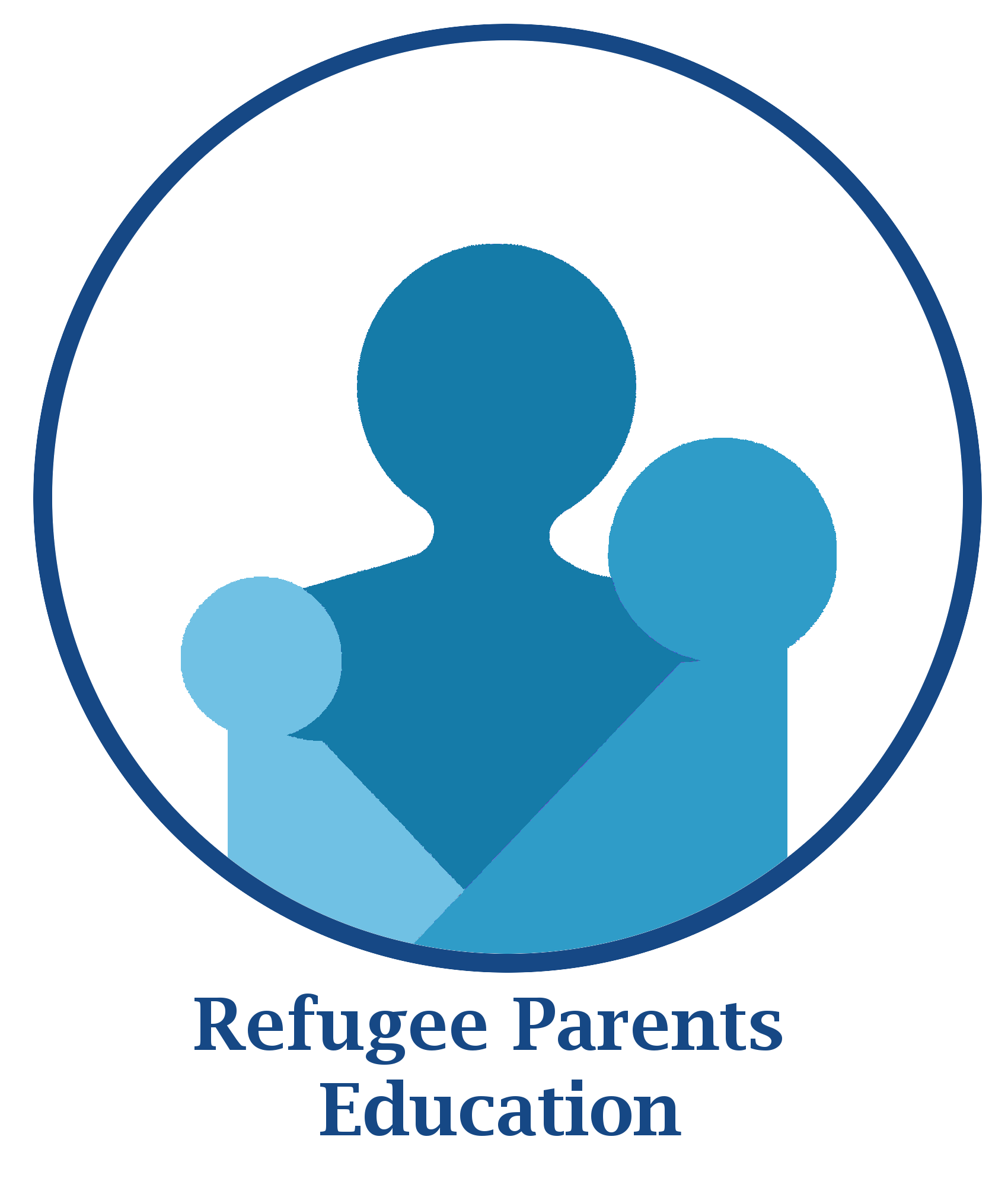
Providing Learning Skills about Generating Solutions of Refugee Parents Facing to Educational Problems of Their Children
Start: 01-09-2017 - End: 31-08-2019 Project Reference: 2017-1-TR01-KA204-045870 EU Grant: 134678 EUR Programme: Erasmus+ Key Action: Cooperation for innovation and the exchange of good practices Action Type: Strategic Partnerships for adult education
Project Summary
Due to the war that started in Syria in 2011, our country was heavily exposed to the migration of refugees. Gaziantep city, which is one of the most refugee cities in this region, closely witnesses their life struggles. As people living in Gaziantep, we are witnessing their proplems in this harmonization and adaptation process since we can see them closely and have the opportunity to watch them. In addition to the economic, social and cultural problems that they have experienced, refugees have faced many problems in the field of education. When a society has to migrate to another country from a long-lived country, it is inevitable that there will be a variety of problems in other places where it has gone before, if it is directly exposed to the cultures. The most important aspect of this problem is that the individual internalizes the situation in which they are and can not control their feelings in the face of the situation and enlarges their problems more in their eyes. The other side is that in the face of the problems it has experienced, it does not know the operating system of the institutions of the country and the resources of the applicants. For example, if a refugee parent interprets the success of the child in his / her school in different ways and thinks that the child is being kicked out of the school by starting the crying or thinking that the parent may be exposed to social exclusion, the fear that the parent will be unacceptable to contact with the school administration, the failure of the child to adequately deal with his / her educational life or the lack of healthy communication with the child and the school, the failure of the community to empathize with the immigration process, the indifference to personal development programs as a parent, etc. We can list many problems such as this. For this reason, our project is a logical solution to the problems faced by the children of refugee parents who are children in school age in their educational life, and at this point the new gathering aims to integrate easily into this area. The target groups must be able to minimize their problems by participating in events such as trainings, conferences, panellas that may be useful for both themselves and their children in the collective adaptation process they are coming from. At the same time, the parents who will best understand the emotional dimension of their children who have to leave the country and have to study in another country, and who will solve the problems are also their parents. Our project will take 24 months starting on 1st September 2017 and ending on 31th August 2019. The project coordinator is Gaziantep University/ TURKEY and we have partners from Spain, Greece. Our project aims to create an applicable training module including social adaptation, integration and providing to increase the learning skills such as communication, empathy, social exclusion, cooperation with the environment and etc of Syrian and other refugee groups' in Europe (especially in the partner countries). This training module will be created and then implemented during the project to target groups then will be disseminated in local, ntaional and in Europe in the related organization and institutions. For this reason, we will give them the necessary support during the process of integration, with the thought that we can contribute to this sociological problem and at the same time taking them away from the point of their arrival and moving them to the target point. Work will be done to motivate their existing potentials and thus to lead them to the best, to increase individual productivity, to give them self-confidence, to prioritize their personal performances and to establish a planned development relationship to achieve their desired performance. One of our most important goals is to support refugee parents towards the goals we set and to ensure that they learn to overcome their problems on their own. We will contribute to the development process by creating awareness of what they should do in the face of their problems. While preparing our project for refugee parents, one of our most important main targets is to raise healthy generations and to contribute to them and to the people of the world. As a result of the research we conducted within the scope of our project, individual trainings, conferences and meetings, websites, etc. We aim to reach the target group and communicate with them in the best way and give them the trainings necessary for this process. In doing so, we aim to get support from all sectors, institutions and organizations of the society to be among our most important principles and reach our project goals in the most perfect way. The Syrian adult parents, who are the targets of the project, have a target language in Arabic and some of them speak English. Although most of them know Turkish language, we aim to increase our communication with our Arabic-speaking students and interpreter support.
Project Material: IO3 - AWARENESS DEVELOPMENT APPROACHES FOR REFUGEE PARENTS TRAINING MODULE AND IMPLEMENTATION GUIDE
Coordinator:
- GAZIANTEP UNIVERSITESI - TURKEY
Partners:
- ANAPTIXIAKO KENTRO THESSALIAS - GREECE
- ASOCIACION CULTURAL Y DEPORTIVA LAHOYA - SPAIN
- Kayra Yoneylem Egitim-Arastirma-Muhendislik-Danismanlik Ltd. Sti. (Kayra Yoneylem education-research-engineering and consulting company) - TURKEY
- Aile, Calisma ve Sosyal Hizmetler Gaziantep Il Mudurlugu - TURKEY
- European Center for Education, Science and Innovation - BULGARIA
log on back to life

log on back to life
Start: 01-09-2017 - End: 31-08-2019 Project Reference: 2017-1-TR01-KA201-046632 EU Grant: 230477 EUR Programme: Erasmus+ Key Action: Cooperation for innovation and the exchange of good practices Action Type: Strategic Partnerships for school education
Project Summary
A modern phenomenon that has been recorded in recent years is internet addiction Disorder (IAD). Internet addiction is described as an impulse control disorder, which does not involve use of an intoxicating drug and is very similar to pathological gambling. Some Internet users may develop an emotional attachment to on-line friends and activities they create on their computer screens. Internet users may enjoy aspects of the Internet that allow them to meet, socialize, and exchange ideas through the use of chat rooms, social networking websites, or "virtual communities." Similar to other addictions, those suffering from Internet addiction use the virtual fantasy world to connect with real people through the Internet, as a substitution for real-life human connection, which they are unable to achieve normally.
Internet addiction has become of the main problems that European secondary school students are facing so our community has to deal with the source of the problem and its impacts. There is a tentative need to investigate the phenomenon and its impacts to all partners’ countries.
The proposed project will cover a number of gaps concerning the phenomenon of addiction to the internet and will detect others that will arise from the social research of the project and form the recording of the phenomenon. The project anticipate contributing to the scientific approach to the diagnosis of the factors that lead to addiction and help in the development of policies that will lead to prevention and treatment of the phenomenon in all its aspects, as they have been emerged from the scientific research so far.
Through the activities of the project, participating organizations, especially those involved with education will have the opportunity to study in depth the phenomenon of students' addiction to the use of the Internet and its impact. Participating organizations will have the change through the project activities and results to highlight those initiatives, educational methods and activities that will lead in both timely and valid revelation of the problem and in the proposal for implementation of all those policies and scientific methods that will lead to an effectively address of the problem. By the end of the project participating organization will be able to offer special training and information sessions to both their teachers and staff and to their students regarding Internet addiction Disorder (IAD) in terms of identifying, preventing and dealing with the phenomenon. That will be done by using the dedicated material and analysis that will arise as project’s results and by using the special eplatform of the project developed for this kind of activities.
Special mention should be made on:
- the social research to be carried out in the framework of our project using specially designed questionnaires by specialized scientists. The questionnaire will be based on already developed and internationally recognized relevant questionnaires, (such as The Internet Addiction Test (IAT), which is one of the most utilized diagnostic instruments for Internet addiction), but will be a customized version of these, according to the requirements and needs of our proposed project
- the Reference Handbook on Assess, prevention and Treatment of Internet Addiction to be developed in the framework of our project. The Handbook will not be a simple document (e.g pdf) file but also an ebook which will be available for all kind of mobile devices (e.g laptops, tablets, smartphones etc). Special mentioned should be made in the new approaches of prevention and treatment which will be proposed under the framework of your project and be included in the handbook
- the new cooperative methodology for the assessment and prevention of internet addiction of Secondary school students that will be developed. The proposed methodology will focus on non pharmacological interventions as these methods cannot be applied in the school environment in an easy way. The methodology is going to be based on the concept of cooperative learning in which students and teachers form discussion teams in order to explore a significant question or create a meaningful project.
We hope that the proposed project will be the starting point and an opportunity for academic exchange between partners and the associated partners, which will highlight the benefits of the Internet, as well the risks arising from abnormal use of the internet. Through the planned activities of the project we expect to have an integrated as possible knowledge of the effects of the use of new technologies, for shielding and empower of secondary school students regarding early diagnosis and addressing of the problem.
Our ambition is to influence, with the results of our research and our activities, institutional and policy makers so to start a dialogue and a thorough investigation of the problem at European level with the participation of the school community.
Coordinator:
- ISTANBUL VALILIGI - TURKEY
Partners:
- ANAPTIXIAKO KENTRO THESSALIAS - GREECE
- Inspectoratul scolar judetean Iasi - ROMANIA
- UNIVERSITA DEGLI STUDI DI MILANO - ITALY
- DIPNOT DERNEGI - TURKEY
- YASAR UNIVERSITESI - TURKEY
ENtrepreneurial GAmes for Growing Europeans

ENtrepreneurial GAmes for Growing Europeans
Start: 01-09-2017 - End: 31-08-2019 Project Reference: 2017-1-IT02-KA201-036947 EU Grant: 299696 EUR Programme: Erasmus+ Key Action: Cooperation for innovation and the exchange of good practices Action Type: Strategic Partnerships for school education
Project Summary
EN.GA.G.E. - ENtrepreneurial GAmes for Growing Europeans
"Education institutions should be encouraged to become more entrepreneurial in their wider approach, to ensure that they develop and live a culture of entrepreneurship and innovation through their missions, leadership, stakeholder engagement, curricula and learning outcomes." (Commission, Entrepreneurship 2020 Action plan)
Promoting early entrepreneurial mindsets in education is one of the most important missions in Europe 2020. The Commission states that entrepreneurial mindsets and innovation mentality is the future growth engine of the European economy.
However, the Commission also states and recognizes that this represents no less than a cultural revolution in European education, and that there are no short-cuts to foster entrepreneurial mentality in schools: entrepreneurial mentality cannot be taught in traditional ways and cannot be guided by theory and research. Entrepreneurial mentality must be practiced and experienced through experimental learning and through opening schools to the wider community.
The way forward is therefore to review, produce, document and disseminate entrepreneurial practice in schools and role-models to share across European education. EN.GA.G.E. aims to be a significant and visible contribution to such practice and to be a role-model for schools in the European community. A concrete outcome will be an informal European network for game-based entrepreneurial learning in primary and secondary schools.
As practicing entrepreneurial mindsets in schools is not an adjustment of current practice, or an improvement of well-established teaching approaches, but precisely a “sea change” as the Commission puts it, including fundamental changes in school mentality and creating new collaborative infrastructures in the community, the EN.GA.G.E. project requests two years of experimentation and documentation.
The project will produce the following types of impact:
- Develop a sense of initiative among the young students, different from the traditional object-role of teaching
- Develop teacher teams’ capacity to create entrepreneurial dimensions in cross-subject and project based activities
- Develop an entrepreneurial atmosphere in the school, including management level
- Foster an increasing interest in the community to engage in school activities and projects
- Offer schools across Europe practice-based guidance and digital tools
- Contribute to networks of entrepreneurial schools in Europe
The project partnership includes school practice partners, knowledge generating partners as well as entrepreneurial partners, and then presents strong and sustainable double national partnerships from Italy, France, Romania, and Greece.
The key outcomes of the project will be:
- Study/research on game-based entrepreneurial learning methodologies in Europe
- EN.GA.G.E. digital games for entrepreneurial education in primary and secondary schools
- Policy recommendations “How to EN.GA.G.E. teachers, pupils and communities in entrepreneurial learning”
What is unique about the EN.GA.G.E. mission?
- An uncompromised user-driven approach
- A strong community approach, including private organisations
- An uncompromised entrepreneurial learning approach: no transmission possible, only experience-based knowledge creation
- A very realistic approach accepting that the project forms part of a cultural revolution expected to take decades
- A strong focus on the usability and quality of the final outcomes
- A very strong will to document processes, as this is the only way to capture entrepreneurial experience
- A well-balanced European partnership with a strong inclusion of Southern and Eastern countries, taking into account that the final guidance should be relevant to schools all over Europe, not only in selected readiness countries
- A strong will to continue the obtained results in the EN.GA.G.E. informal network
Coordinator:
- Istituto Comprensivo Panicale - Piegaro - Paciano - ITALY
Partners:
- ANAPTIXIAKO KENTRO THESSALIAS - GREECE
- UNIVERSITATEA DIN PITESTI - ROMANIA
- PALATUL COPIILOR PITESTI - ROMANIA
- EUROPEAN GRANTS INTERNATIONAL ACADEMY SRL - ITALY
- MOUSIKO SCHOLIO TRIKALON - GREECE
- Conservatoire National des Arts et Métiers des Pays-de-la-Loire - FRANCE
- Lycee professionnel Rene COUZINET - FRANCE
YOUNG LEADERS INTERNATIONAL MEETING

YOUNG LEADERS INTERNATIONAL MEETING
Start: 02-01-2017 - End: 01-01-2019 Project Reference: 2016-3-IT03-KA347-009604 EU Grant: 21260 EUR Programme: Erasmus+ Key Action: Support for policy reform Action Type: Dialogue between young people and policy makers
Project Summary
The YOUNG LEADERS INTERNATIONAL MEETING project, identifying participation as one of the areas of intervention, aimed to support the participation of young people in representative democracy and civil society, and to support the involvement and participation of young people and youth organizations in the development, implementation and evaluation of policies through the structured dialogue tool.
One of the specific objectives was to devise or modify national laws that improve the juvenile condition.
SOS Europe, together with all the partners involved, using the structured dialogue as a tool for a better cooperation in the field of youth aimed at involving more and more young people, especially those with less opportunity, in the development of EU policies.
The thematic priority of our project was: "To allow all young people to participate in a heterogeneous, connected and inclusive Europe - Ready for life, ready for society".
With this project we wanted to give the opportunity to many young people and adults to get in touch with the organizations involved in the promotion of active citizenship and in the improvement of policies in favor of young people.
The project involved 48 young people plus 12 political decision makers or experts in the field of youth policies, for a total of 60 participants (including 28 with fewer opportunities) from 12 different countries. The project included a transnational meeting that took place in Ciampino from 27 to 31 October 2017 organized by SOS Europe in collaboration with all the partners. The activities were carried out with the most modern non-formal European methodologies of comparison such as Open Space Technology (OST), Focused Conversation, Future Search Conference and European Structured Dialogue (DSE).
The content and activity plan are based on the SALTO publication as "Working on Work for All" and "InclusionthroughEmployability". Each participant will then receive the YouthPass certificate. In order to share and disseminate the results of the project outside of SOS EUROPA and Italy and to promote the role of the Erasmus + program, a complete and complex dissemination plan has been implemented.
AFTER MEETING we have achieved the following results:
- the drafting of 12 projects to introduce a new law in favor of young people
- More 40% of participants in the next 8 months since the end of the meeting participated in other international mobility projects (including EVS).
- All partners continued to work together in future projects
- We presented the second edition of Young Leaders.
Coordinator:
- ASSOCIAZIONE SOS EUROPA - ITALY
Partners:
- ANAPTIXIAKO KENTRO THESSALIAS - GREECE
- MOVE! Murcia - SPAIN
- MLADIINFO SLOVENSKO - SLOVAKIA
- Foundation for Society - LATVIA
- Association for Cultural, Economic, Heuristic and Linguistic Cooperation - BULGARIA
- Psientífica - Associação para a promoção e desenvolvimento social - PORTUGAL
- Fundacja Global Wave - POLAND
- Asociatia Tinerilor Cu Initiativa Civica - ROMANIA
- EUROKALLISKIVID - ESTONIA
- Symrnes Ogretmen Akademisi - TURKEY
- Subtiluship C.I.C. - UNITED KINGDOM
BLUE - Blended Learning usability experience
BLUE - Blended Learning usability experience
Start: 01-10-2016 - End: 30-09-2018 Project Reference: 2016-1-DE02-KA104-003220 EU Grant: 163265 EUR Programme: Erasmus+ Key Action: Learning Mobility of Individuals Action Type: Adult education staff mobility
Project Summary
The adult education centers in Bavaria are confronted with new challenges concerning the continuing digitalization in the educational sector. The development and diffusion of e-learning tools and technology has deeply changed the opportunities for adult education. Therefore, the Bavarian Association of Adult Education (bvv) initiates an Erasmus+ mobility project called “BLUE - Blended Learning usability experience”. We do not see e-learning as a replacement for traditional instructor-led training but as a complement to it, forming part of a blended-learning strategy for the adult education centers in Bavaria. We want to enhance the executive staff, the specialists and the teachers to continuously broaden their horizons, improve their qualifications and facilitate the exchange of know-how amongst the practice groups. Furthermore we would like to provide learners with opportunities for practical knowledge in very experienced institutions as far as Blended Learning is concerned. This includes rapid further development in pedagogy with regard to the use of information and communication technologies and their consistent implementation in teaching. Without a sustainable teaching concept, the technology is almost useless.Corresponding to the migration movements in Europe, the target groups of our members are constantly changing. We try to develop frameworks to support easy and cost-effective access to a wider range of educational opportunities for adults that include elements of blended learning approaches. During the two year-term of the EU-financed project, we plan to send about 99 participants from our associated members, the adult education centres in Bavaria, to different educational institutions among Europe, which offer courses for adults that deal with blended learning issues and are really experienced in the use of it. The bvv will be responsible for the project development, punctuality and proper billing. With our project work we would like to promote the intercultural exchange of ideas and knowledge, an exchange all sides could certainly benefit from. We plan to work with partners from Greece, Estonia, Denmark, United Kingdom and Cyprus.
Website:
Coordinator:
- Bayerischer Volkshochschulverband e.V. - GERMANY
Partners:
- ANAPTIXIAKO KENTRO THESSALIAS - GREECE
- A' TECHNICAL SCHOOL OF LIMASSOL - CYPRUS
- Valga County Vocational Training Centre - ESTONIA
The Quality Mark in Youth Work
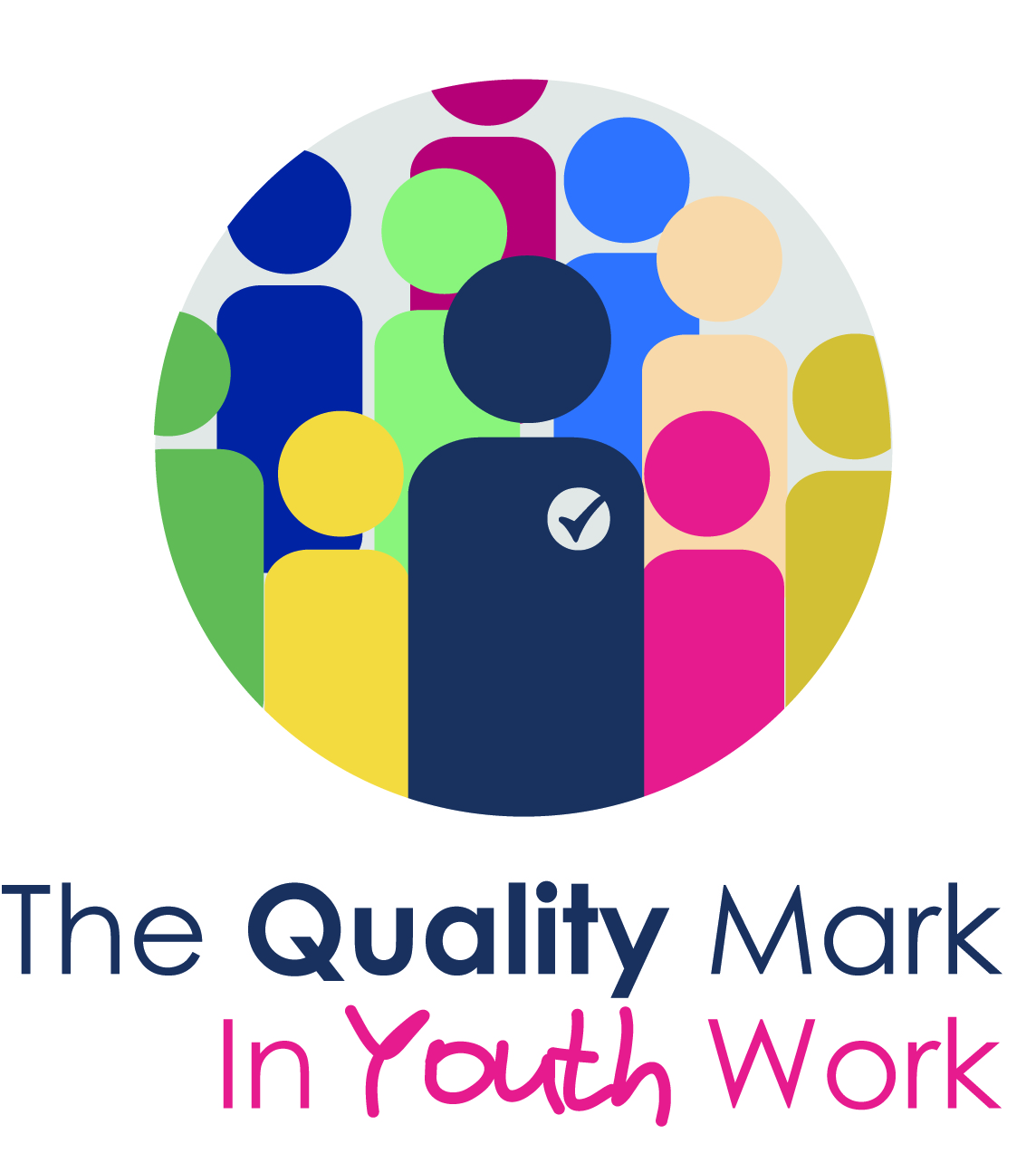
The Quality Mark in Youth Work
Start: 01-10-2016 - End: 31-05-2017 Project Reference: 2016-2-EL02-KA105-002591 EU Grant: 24983 EUR Programme: Erasmus+ Key Action: Learning Mobility of Individuals Action Type: Youth mobility
Project Summary
"The Quality Mark in Youth Work" is a mobility project that will take place in Trikala, Greece, from 6th to 13th December 2016 and It will bring together 31 participants from EU countries and one non EU, in particular from: Malta, Slovenia, Spain, Netherlands, United Kingdom, Greece, Romania, Poland and Turkey. It aims at combining new aspects in managing youth organisations by using coaching techniques as a methodology. The project wants to support youth workers and offer them theoretical and practical tools to work with and use when training young people. Therefore, the main objectives of the project are following: - sharing experiences that help to improve organisation management;- identify all fundamentals that influence organisation management , project managemet i, decision making process; - hand over competences to the participants and stimulate a new way of thinking regarding management of youth organisation and realise quality projects in the field of young people ;- establish a partnership with all partner involved ;- create a booklet regarding organisation management in youth organisation ; - support quality and innovative projects that match needs of young people; - promote projects that foster partecipation and active citizenship of young people ;- boost intercultural dialogue;-empower new generation of facilitators and youth workers. The methodology and type of activities will be mainly related to non formal education, coaching, self-expression, simulation games, peer to peer, learning by doing and experimental learning. The important part is that participants are creating the outcome by themselves through their participation and involvement. The result we aim to achieve is to put developed practice and work-forms into book which will be published and spread through project partners and other networks. Once the training is over, participants will implement activities in their own communities and share the information acquired during the course. The ultimate goal of the project is to challenge the traditional ways to manage youth organisation while combining various approaches and bring together different stakeholders. In this way, we strongly believe that we can propose innovative work-forms for facilitators and fellow trainers which can be used in organisation management.
Website: www.facebook.com/groups/977137749052535/
Coordinator:
- ANAPTIXIAKO KENTRO THESSALIAS - GREECE
Partners:
- CONSILIUM DEVELOPMENT AND TRAINING LTD - UNITED KINGDOM
- Biderbost, Boscán & Rochin - SPAIN
- ISTANBUL VALILIGI - TURKEY
- ZAVOD ROKA, Zavod za projektni management, Cernelavci - SLOVENIA
- EU labour rights - NETHERLANDS
- CLUSTERUL DE ENERGII SUSTENABILE DIN ROMANIA ROSENC/ROMANIAN SUSTAINABLE ENERGY CLUSTER ROSENC ASOCIATIE - ROMANIA
- PRISMS - MALTA
- STOWARZYSZENIE MOJE MARZENIA SPELNIAJA SIE - POLAND
